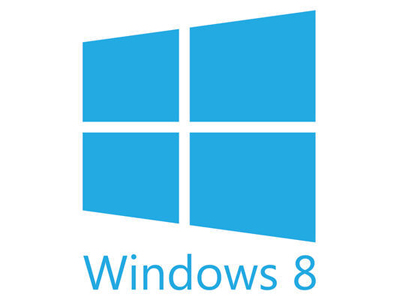PC Vendors Worried About Windows 8's Future
PC vendors have continued to voice their worries regarding Microsoft's new operating system, Windows 8, and are expressing doubts in the platform's ability to succeed in the future.
"Demand for Windows 8 is not that good right now," David Chang, chief financial officer for Asus, told The Wall Street Journal. Acer executives "were uncertain how Windows 8 would be received by consumers."
"The expectations of what we forecasted for - I don't want to say we're right on track - we're probably close to being on track to where we predicted," Sony VAIO product manager Dave McFarland told Wired. "If I had to compare Windows Vista to Windows 7 versus Windows 7 to Windows 8, our sales numbers aren't as high as from the Vista to Windows 7 era."
Jeff Barney, vice president and general manager of Toshiba America's PC and TV business, stressed that the time when "Windows was the only game in town" is over. That said, he noted that initial sales of Windows 8 products were in line with Toshiba's expectations, but stated that Microsoft probably has greater projections for its platform.
"I'm not saying it's all gloom. The outlook looks pretty good for us," McFarland added. Neil Hand, Dell's VP of global end user computing, called "the support and messaging from Microsoft" surrounding Windows 8 "extremely strong." He continued: "Any big transition like this takes more than few weeks to take hold."
Despite the optimism, official figures have pointed towards a disappointing launch for the long-awaited operating system. U.S. Windows PC sales have decreased by more than a fifth since its launch when compared to sales during the same period in 2011. The software giant is also rumored to already be cutting the production of its Surface RT tablet by half due to the lack of interest. Although Microsoft has sold 40 million Windows 8 licenses, sales for the OS is said to be "well below" the company's projections. Moreover, it's been criticized for being a part of the decreasing growth of the PC industry.
Surveyed consumers expressed the fact that they simply aren't interested in Microsoft's latest operating system, with PC component suppliers suggesting the platform will fare better during 2013. That said, more than half of consumers apparently hadn't heard of Windows 8's existence. The lack of awareness from consumers exists despite Microsoft's efforts in advertising the product. It spent $1.5 billion in marketing alone, and is offering free Wi-Fi in New York and San Francisco until year's end.
Get Tom's Hardware's best news and in-depth reviews, straight to your inbox.

Zak Islam is a freelance writer focusing on security, networking, and general computing. His work also appears at Digital Trends and Tom's Guide.
-
ianj14 Well, since we are in the biggest worldwide recession since the great depression, and the IT landscape is somewhat changed with a level of platform fragmentation never seen before in MS history, I'm not surprised consumers aren't bothered by it.Reply -
NightLight let me sum win 8 up in just a few words: great for (i)sheep, not so great for enthousiasts. it's obvious that it is made to steal some mac users back, and they made a great effort to create an ecosystem of their own. i salute ms for this bold move, but maybe they should split things up: Server, Sheep, and Enthousiasts (think NT / 2000)...Reply -
Bad word of mouth spreads like wildfire. To most Windows 7 works just fine and this seemed forced and rushed to the front. Very Vista like release. Plus no one likes metro or being forced to buy a touchscreen to take full advantage of 8. I for one wont be putting it on my desktop. It will flop.Reply
-
ravinmachine No matter what side you sit on with the Windows 8 debate; Microsoft's 3 year development cycle is way too short. Especially since Windows 7 was such a great hit, and the world is recovering from the recession. People are happy with what they have. Maybe if they had released Windows 8 two years from now they would have done better.Reply -
meluvcookies It continually amazes me how the common sense of boards like this one can predict the failure of something like Win8 MONTHS (if not years) in advance, and yet Microsoft (and others) continue down their paths of failure. Here's hoping that Win9 puts the "Win" back in windows.Reply -
zorky9 Most consumers who have not had the need for the W8 interface and apps nor the hardware to support it (touchscreen) will happily stick to 7. This just speaks to how good Windows 7 is.Reply
The growing market for productivity tablets is where W8 fits better. Definitely not an underserved market, but to expect the same growth W8 would have to the level of adoption W7 enjoyed early on is overly optimistic.
